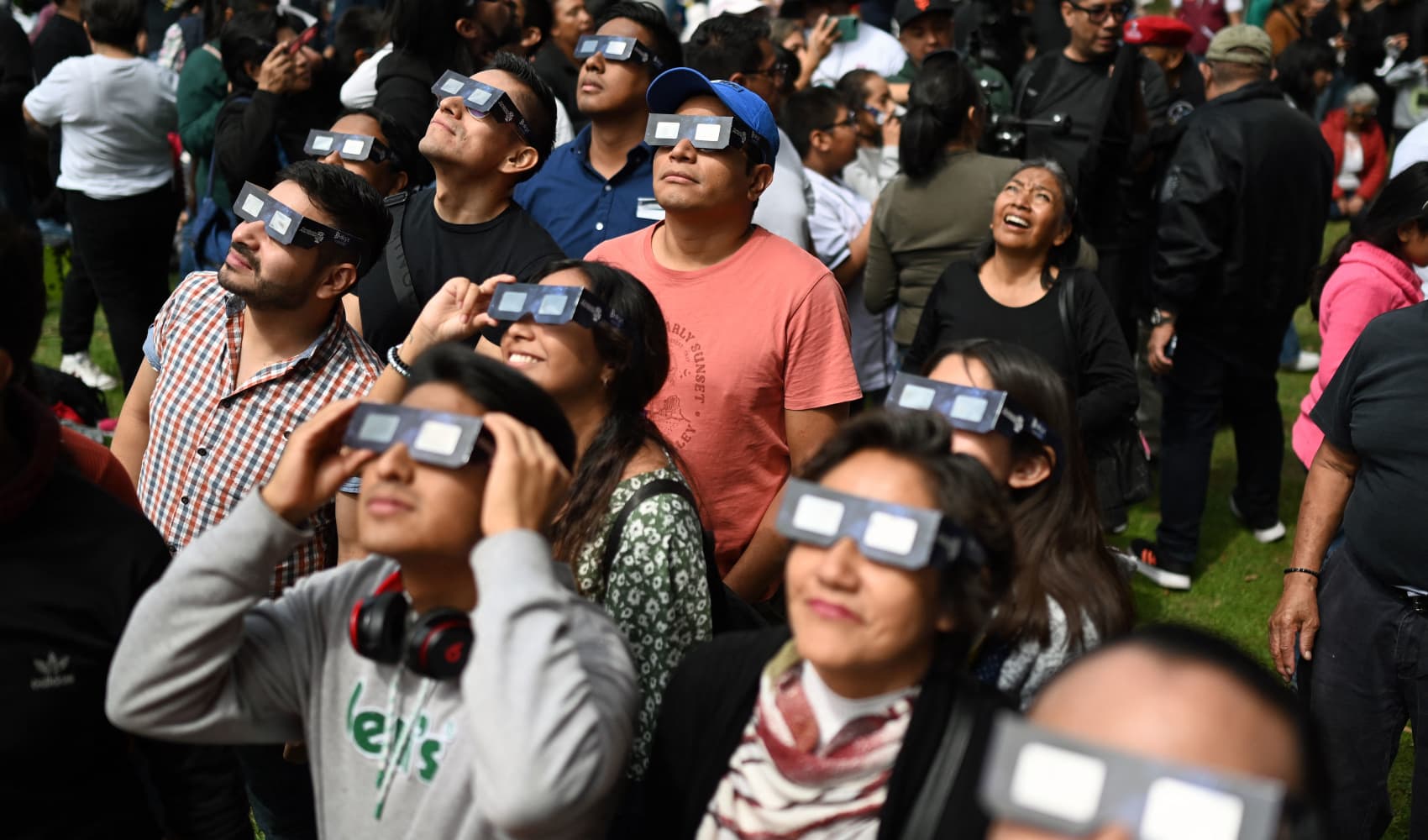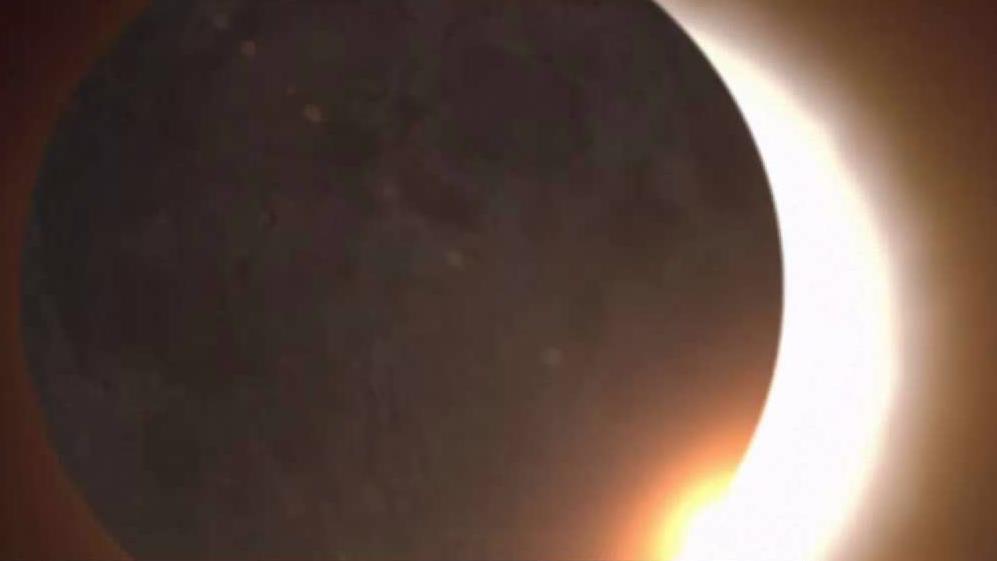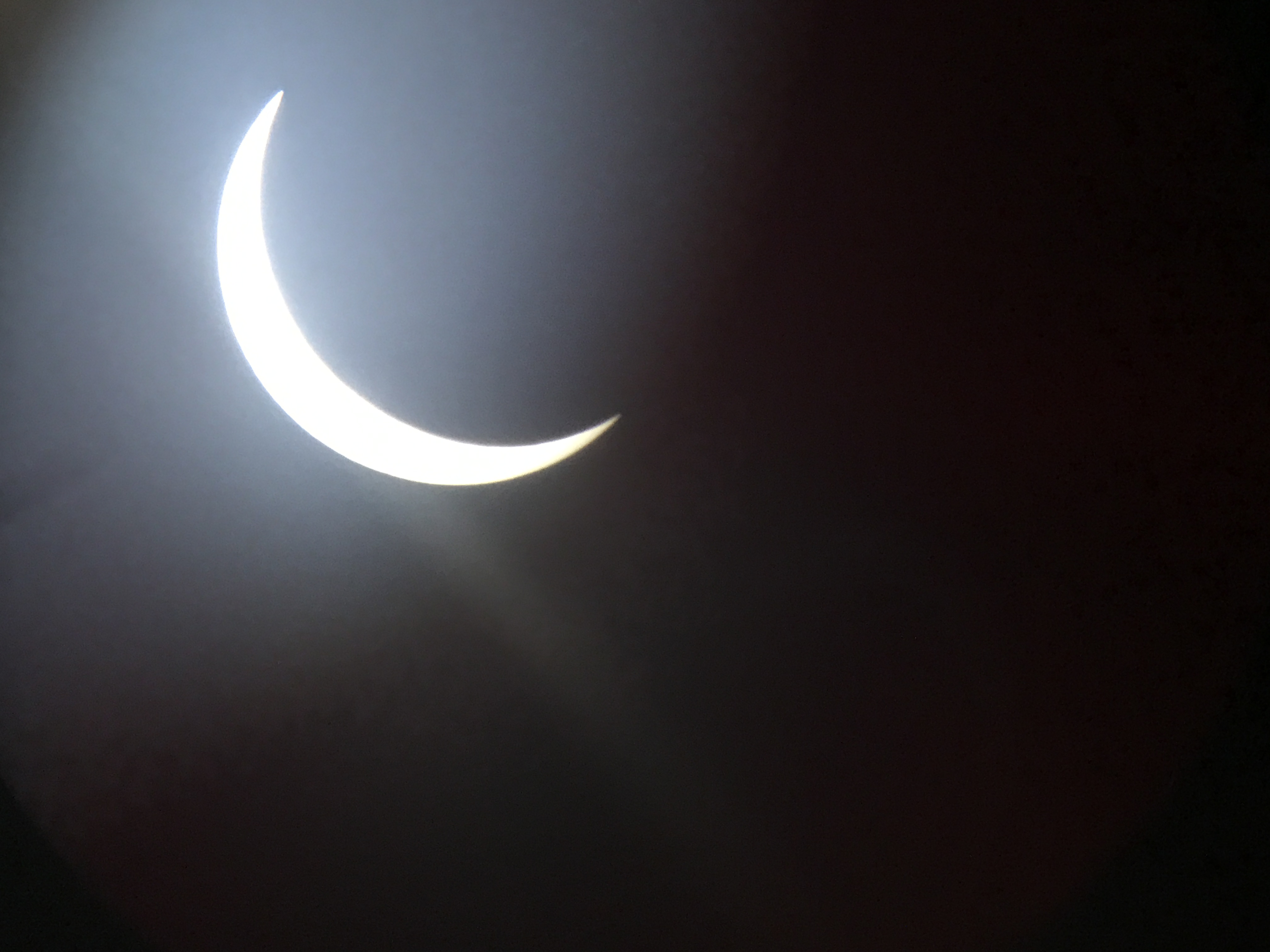Editor's Note: Live coverage of the eclipse from the path of totality begins in the player above starting at 7 a.m. Tune in for live totality starting at 1:55 p.m.
Droves of eclipse chasers set out on Friday to catch a prime viewing spot for Monday's total solar eclipse, an event widely considered a once-in-a-lifetime spectacle.
The path of totality, which stretches from Texas to Maine and includes parts of southern Illinois, will be the center of attention. Uncertainty looms for millions, however, as clouds could block the view along portions of the path.
However, as of Friday afternoon, meterologists insisted forecasts could still change and to wait and see what happens. Whether you'll be catching a glimpse of the eclipse from home or watching from the path of totality, wearing approved glasses will be necessary, according to medical experts.
If not, you could be at risk for pretty serious damage.
Those who experience the eclipse in totality will be able to take off their glasses for a short period of time, according to the American Academy of Opthamology. It will be safe to remove eye protection during the period of totality, when the moon completely covers the sun.
But that will only last around four minutes or so, and you won't want to keep your glasses off the entire time.
As soon as the sun begins to reappear very slightly, you should immediately put your glasses back on, according to the AAO.
If you'll be in the Chicago area or anywhere else where a partial eclipse will occur, it won't be safe to remove your glasses at any point. Looking at the sun without the right eye protection — for even a short time — can permanently damage your retina. It can even cause blindness, called solar retinopathy.
Feeling out of the loop? We'll catch you up on the Chicago news you need to know. Sign up for the weekly Chicago Catch-Up newsletter here.
Solar eclipse glasses recall: Amazon, Midwestern retailers issue recall for some solar eclipse glasses
While some people may recover their vision as their retina heals, many won't, according to the Baylor College of Medicine. Plus, no reliable treatment for solar retinopathy exists, making the use of proper eye protection even more important.
For many patients who end up experiencing vision problems, the damage might not occur right away.
"It's not really even obvious on an exam at first for those patients," said Derek Price, an optometrist in Fort Wayne, Indiana. "They'll come in with a complaint, they'll tell you I'm seeing a spot in my vision and that's all you get. But then over the course of the next couple months, if they come back, then you can see where it's degraded the retina itself. If it's degraded... the photoreceptors in the back of the eye could be lost forever."
if you're still holding onto glasses from the 2017 solar eclipse and hope to reuse them, you might want to think twice, according to eye care professionals. Even if the glasses don't have an expiration date, your best bet is to toss them.
"It's recommended you purchase new glasses," Dr. James Landrenau, a surgeon with the opthamology department at the University of Missouri Health Care, said. "If there are any types of scratches..even a fold in the material can be significant enough that it won't offer you the full protection. So even the tiniest kink is enough to make it not up to standards."
If you experience discomfort or vision problems following the eclipse, you should visit your local doctor of optometry for an in-person, comprehensive eye exam, according to the American Optometric Association. Some common symptoms include:
- Loss of central vision
- Distorted vision
- Altered color vision
If you aren't sure whether your glasses are up to the approved standard, here's how to check. Real eclipse glasses will have curved lenses that are reflective and extremely dark, rather than transparent ones that look like sunglasses.
"Even if you have sunglasses on, it's not recommended to look at the sun with those. It just wants to give you a little bit of UV protection," Landrenau said. "But in this case, if you're like doing direct viewing of the sun, you need something stronger."
For those planning to see the eclipse through a camera, binoculars or telescope, those devices alone won't be enough.
Special solar filters are needed to avoid eye damage, explained Nicole Bajic, a surgical ophthalmologist with the Cleveland Clinic.




